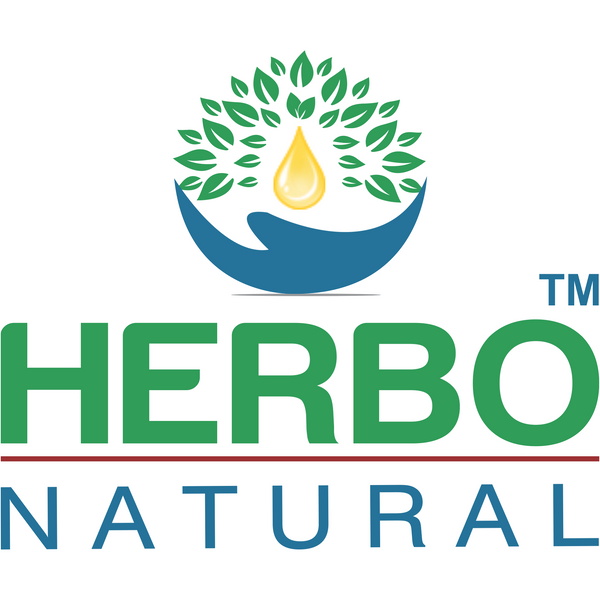
How to Boost Male Fertility?
dr. herboShare
Male fertility is the main point of reproductive health that often goes overlooked. It plays an important role in starting and growing families. However, many men face challenges with fertility as they age, particularly after the age of 35 and beyond. If you’ve noticed a decline in your ability to conceive, you’re not alone. In fact, it’s common for men to experience reduced fertility as they get older. Lifestyle changes, diet, exercise, and supplements can help you improve fertility and increase the chances of conception.
Understanding Male Fertility
Before we dive into solutions, it’s important to understand how male fertility works. Male fertility is typically determined by sperm count, sperm motility (the ability of sperm to swim), and sperm morphology (the shape of sperm). A decrease in sperm count, quality, or motility can reduce fertility, making it harder to conceive. Male fertility is also influenced by external factors, including lifestyle habits, diet, stress, and age. Studies show that as men age, sperm quality tends to decline, especially after 35. While a woman’s fertility often declines more sharply after 30, men may experience a gradual decrease in sperm quality from their mid-30s onward.
How Age Affects Male Fertility
As men age, several factors can affect fertility. After the age of 35, sperm production and quality begin to naturally decline. This is due to a decrease in testosterone levels, which impacts sperm production. Additionally, sperm motility can decrease, making it more difficult for sperm to reach and fertilize the egg.
A study published in the journal Human Reproduction Update revealed that men aged 40 and older had a significantly lower sperm count and motility compared to younger men. Furthermore, men over 40 were found to have an increased risk of producing sperm with genetic abnormalitie.
So, how can men improve fertility after 35 and 40? The good news is that even though aging affects fertility, it’s still possible to make positive changes that can support sperm production and motility.
Natural Ways to Boost Male Fertility
There are several natural ways to boost male fertility. Lifestyle adjustments such as diet, exercise, and stress management can have a significant impact on sperm count and motility. Let’s explore the most effective strategies to improve male fertility.
Diet and Nutrition: Best Foods to Improve Male Fertility
What you eat can directly impact your fertility. A healthy diet rich in nutrients can support sperm production and overall reproductive health. Key nutrients that play a role in fertility include:
Zinc: Essential for sperm production and testosterone levels.
Vitamin C: Antioxidant properties help protect sperm from oxidative stress.
Folic Acid: Important for sperm health and motility.
Omega-3 Fatty Acids: Support sperm quality and motility.
Foods to include in your diet for better fertility include:
Leafy greens (rich in folate)
Walnuts and flaxseeds (sources of omega-3 fatty acids)
Oysters and lean meats (high in zinc)
Citrus fruits (rich in vitamin C)On the other hand, foods to avoid include processed sugars, excessive caffeine, and alcohol, as these can harm sperm quality and reduce fertility.
Exercise and Weight Management: How a Healthy Lifestyle Can Boost Fertility
Exercise plays a vital role in boosting male fertility. Regular physical activity helps maintain a healthy weight, which is important for sperm health. Studies show that overweight and obese men tend to have lower sperm counts and poorer sperm quality.
Engaging in moderate exercise, such as walking, swimming, or cycling, can improve overall health and fertility. Aim for at least 30 minutes of exercise most days of the week. However, excessive or intense exercise can have the opposite effect, so balance is key.
Stress Management:
The Importance of Reducing Stress on Sperm Quality
Chronic stress can negatively impact fertility by raising cortisol levels, which interfere with testosterone production and sperm quality. Research has shown that stress can lower sperm count and motility.
To manage stress, try relaxation techniques such as meditation, yoga, deep breathing, or spending time in nature. Regular physical activity also helps reduce stress and boosts fertility.
Sleep Quality:
The Impact of Rest on Testosterone and Fertility
Sleep is another critical factor for male fertility. During sleep, the body produces testosterone, which plays a crucial role in sperm production. Poor sleep habits can lead to lower testosterone levels, reduced sperm quality, and diminished fertility.
Aim for 7-9 hours of quality sleep each night. Create a relaxing bedtime routine and avoid electronics before sleep to improve sleep quality.
How to Improve Male Fertility After 35 and 40
Men over the age of 35 face unique fertility challenges, but making certain lifestyle adjustments can help improve fertility even after 40. Some key tips include:
- Get Regular Fertility Checkups: If you’re over 35 and trying to conceive, it’s a good idea to get a fertility checkup. A doctor can assess your sperm count and motility and suggest any necessary treatments or lifestyle changes.
- Consider Herbal Supplements: Herbal supplements can support male fertility naturally. For example, Herbo Natural's Fertilex Capsule is an excellent supplement designed to boost sperm count and motility. It contains natural ingredients that strengthen the reproductive system and promote healthy sperm production.
- Limit Exposure to Toxins: Avoid environmental toxins such as pesticides, heavy metals, and chemicals, as these can harm sperm production and motility.
- Increase Antioxidant Intake: Antioxidants help protect sperm from damage and improve sperm quality. Foods rich in antioxidants, such as berries, nuts, and dark chocolate, can be beneficial.
Best Diet to Improve Male Fertility
A balanced, nutrient-rich diet is key to improving male fertility. Some of the best foods for enhancing fertility include:
Leafy Greens: High in folic acid, which is essential for sperm motility.
Whole Grains: Rich in antioxidants and fiber, which support overall reproductive health.
Nuts and Seeds: Packed with zinc and omega-3 fatty acids, which are vital for sperm production.
Lean Protein: Supports overall health and hormone production.
In addition to including these foods, avoid processed foods, high sugar, and excessive alcohol consumption. These can reduce sperm quality and affect fertility.
The Role of Supplements in Male Fertility
Supplements can also play a vital role in improving male fertility. Some of the best supplements to enhance male fertility include:
Zinc: Helps improve sperm count and motility.
Vitamin C: Acts as an antioxidant to protect sperm from damage.
Folic Acid: Supports sperm production and quality.
Herbal Supplements: Natural supplements like Herbo Natural's MorMan Capsule are formulated to support male sexual health and performance. The MorMan Capsule helps with erectile dysfunction, stamina, and overall sexual health, improving fertility in the process.
If you're looking for a natural solution to boost male fertility, Herbo Natural’s Fertilex Capsule can help improve sperm count and motility, making it a safe and effective option.
Lifestyle Changes to Improve Fertility
Some lifestyle factors can reduce fertility, such as smoking, alcohol consumption, and exposure to environmental toxins. To improve fertility, consider the following lifestyle changes:
Quit Smoking: Smoking damages sperm DNA and reduces sperm count.
Limit Alcohol: Excessive alcohol consumption negatively affects sperm quality.
Avoid Hot Tubs and Saunas: High temperatures can harm sperm production.
Reduce Exposure to Environmental Toxins: Limit contact with pesticides, chemicals, and heavy metals.
When to Seek Medical Help
If you’ve been trying to conceive for over a year and have not succeeded, it may be time to consult a fertility specialist. A doctor can conduct tests to determine the cause of infertility and recommend appropriate treatments.
Conclusion
Boosting male fertility naturally is possible with the right combination of diet, exercise, stress management, and supplements. By making lifestyle changes and incorporating fertility-boosting supplements like MorMan Capsule and Fertilex Capsule, you can significantly improve your chances of conceiving.
Remember, small but sustainable changes can have a big impact on your reproductive health. Start today by adopting healthier habits, and you’ll be on your way to improved fertility!
